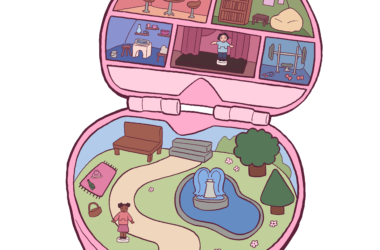On November 18, a revision to the Criminal Code that makes it illegal to “counsel a person to commit suicide” or aid or abet them in doing so, regardless of whether they are successful, was passed unanimously in the House of Commons. The revision, which was proposed by Kitchener-Conestoga Member of Parliament Harold Albrecht, was a response to the March 2008 suicide of Nadia Kajouji, a first-year student at Carleton University who drowned herself in the Rideau River. A police search of her laptop revealed conversations with a 47-year-old male nurse who, according to chat room transcripts, both encouraged her to kill herself and suggested she hang rather than drown herself so that he could watch.
Among Canadian university students, suicide is a leading cause of death, second only to car accidents. And while suicides are nothing new, questions over what drives young adults to end their lives, and what prevention measures universities should employ, are still unresolved.
“Suicide is a human disaster,” says Rory Butler, president of Your Life Counts, an online resource for youth considering suicide or engaging in self-destructive behaviour. “For every death by suicide, there are over 100 attempts. It really is a silent epidemic that affects communities across the country and there is no strata of society that is more susceptible to it than anyone else. It’s everybody’s problem.”
Suicides on university campuses
According to Robert Pihl, a McGill psychology professor, surveys of university students show that 46 per cent have a diagnosable disorder. “For the majority of youth it’s alcohol and drugs, and that’s an ephemeral problem. But there are still 10 to 11 per cent who have mood or personality disorders, where it is a concomitant risk for suicide.”
Dr. Robert Franck, clinical director of McGill Mental Health Services, explains that there are many factors involved in the occurrence of mental disorders and suicidal acts amongst university students. “Students being away from familial support combined with potential triggers such as financial worries, self-isolation, drug abuse, excessive perfectionism resulting in self-disappointment, relationship problems, questions around sexual identity, etc.,” he says.
According to Franck, late adolescence is also when ailments like major depression and anxiety disorders are often first diagnosed. Butler adds that certain individuals can find this stage of development, and the changes it entails, particularly trying, which can lead to destructive behaviour.
“When it comes to university, being away from home, there comes into play a whole host of new things that you begin to deal with on a day-to-day basis, in residence or living in rented accommodation, that you haven’t come across before,” says Butler.
McGill is doing its part to help students struggling with mental health issues. Mental Health Services has witnessed an increase in students seeking aid and counselling, which is part of a larger upward trend in universities across North America. A recent study conducted by the University of Pittsburgh’s National Survey of Counseling Directors found that 94 per cent of college counselling directors reported an increase in students with significant psychological conditions such as depression, drug and alcohol addictions, and eating disorders.
“There is ongoing debate as to whether the incidence of these illnesses is on the increase, or whether we are better at identifying these conditions which are already there,” says Frank. “De-stigmatizing psychological problems facilitates students seeking help, as does encouragement from floor fellows, faculty advisers, and academic staff. Unfortunately, however, many students still hide their symptoms of depression or anxiety from their family or peers.”
McGill is taking measures to ensure that students in residence are provided with appropriate resources. Floor fellows are trained to help students who may be experiencing depression or anxiety, ranging from everyday stresses to more destructive behaviours. “When we have students who are having suicidal thoughts and who approach us, we first make them promise not to take any actions until we can work together to find a way to improve the situation,” says Nida Nizam, a floor fellow at New Residence Hall. “We can set them up with Mental Health and work with the student to find the best solution to their issues.”
Franck also emphasizes the positive role of student-run services in encouraging students struggling with mental issues to seek help. Nightline, for instance, is a confidential service allowing students to anonymously connect with student volunteers who are trained to deal with a variety of questions or concerns, even suicidal thoughts.
“Student-led initiatives are extremely helpful – Nightline, Queer McGill, SAACOMS, Headspace, etc. – in providing peer support,” says Franck.
Jane Everett, dean of students at McGill, explains that student services at McGill have multiplied in the past decade in order to make students’ lives easier. “[Aid from student services] is a way to get many of the distractors and the stress out of your life so you can go forward smoothly. Take advantage of this – you’re paying for it, so it’s something you’re entitled to,” says Everett.
In loco parentis
Another aspect of university suicides is where to draw the line between a student’s right to privacy and the school’s responsibility to intervene in the event of a crisis. Under the Freedom of Information and Protection of Privacy Act Carleton University failed to notify Kajouji’s parents that she had been receiving counselling and exhibiting suicidal behaviours. Similarly, in the case of Elizabeth Shin – a student at the Massachusetts Institute of Technology who set herself on fire in her dorm room in 2000 – her parents claimed that the university made matters worse by not informing them of the suicidal tendencies their daughter displayed in the month before her death.
Assuming that their students are adults with the right to autonomy and privacy, administrators at MIT follow a policy of only involving parents if they provide invaluable assistance to the individual in question. Like MIT, McGill operates under the assumption that they are dealing not with children but adults, and as such no exception is made for students living away from home. The university is not responsible for acting in loco parentis – Latin for “in the place of parents” – and therefore treats its students as they would staff members, i.e., as consenting adults.
Everett explains that until the individual’s life is directly in danger, provincial legislation prohibits the disclosure of personal information without the student’s consent. In the event that a certain “crisis point” has been reached, often health care professionals as opposed to parents will be notified.
“[Counsellors and health care professionals] are bound by professional codes of ethics … There are very specific instances in which they can communicate with family members,” says Everett. “From what I understand, the crisis point would be the direct threat. This is a duty that we all have as citizens – if someone’s in harm, you tell someone. But you may not necessarily tell family members.”
Under provincial privacy legislation, the university may not release the private information of its students – including any counselling records of a history of mental disorders – to any third party who is not directly involved, except in the event of an immediate crisis. A revision to Section 59.1 of Bill 180 states that relevant information may be released only “without the consent of the persons concerned, in order to prevent an act of violence, where there is reasonable cause to believe that there is an imminent danger of death or serious bodily injury.”
“There are cases when one should inform whoever can help prevent,” says Pihl. “It is a temporary problem and if you don’t do something, then you are being unethical.
If a person talks to a professional about suicide, they’ve come to you for help and it’s your job to do what you can to help them.”
McGill Mental Health Services is doing all that they can to provide resources to the students who seek their help, and operates within the confines of Quebec confidentiality law when it comes to releasing information about a patient’s health.
Though the school will not act in the parents’ place, students may choose to maintain a higher level of parental participation in his or her university life. “Some students are perfectly happy to sign waivers allowing their parents to have access to information,” says Everett.
Your life counts – whether you think it does or not
While Canada does lack a national suicide prevention strategy, smaller groups and organizations outside of the university context such as Your Life Counts are also providing means of prevention.
“We want to be there before a crisis hits,” says Rory Butler, CEO and president of YLC. “I’m a suicide survivor myself, and I reached a point in my life when I really believed that my family would be better off without me, so I know what it is like to feel as if life is no longer worth living.”
Through an email response system, YLC aims to provide an anonymous platform in which youth – mostly between the ages of 14 and 24 – can vent. In contrast to therapists, hotlines, or even parents and friends, YLC enables youth to speak to trained professionals in a less confrontational manner than one-on-one counselling.
“Sometimes reaching out for help is the hardest thing of all,” says Butler. “There are some youth who would rather die than speak to anyone. Someone who is spinning into crisis is not in the right shape to make a phone call. We’re trying to go straight into their world in an unthreatening way.”
In the last year, the site received over 980 emails from concerned youth, and this year The Institute of Communication Agencies has even adopted YLC as their focus charity in 2010. By offering a safe heaven in which those looking to voice some of their difficulties can do so, YLC hopes to enable youth to recognize that with a little help and support, their problems can be fixed.
YLC’s success is also in large part due to the help of those who have suffered the tragic loss of a family member to suicide. Two such volunteers are Muhammad and Mark Kajouji, father and brother of Nadia, who have become ambassadors on behalf of YLC.
“Their concern is to work with the system, to help the system, to understand where the pitfalls and dangers lie,” says Butler. “And how we can begin to ensure that the dreadful loss of Nadia doesn’t happen again.”
The criminalization of suicide attests to the desperation on the part of the government to dissuade those contemplating ending their own lives. That is why mental health services on campuses and online organizations like YLC seek to remind youth that their problems can be addressed long before suicide becomes the only alternative. Both Butler and Pihl affirm that “suicide is a permanent solution to a temporary problem” – it is a remedy to an ephemeral state of mind, and one that cannot be taken back.







